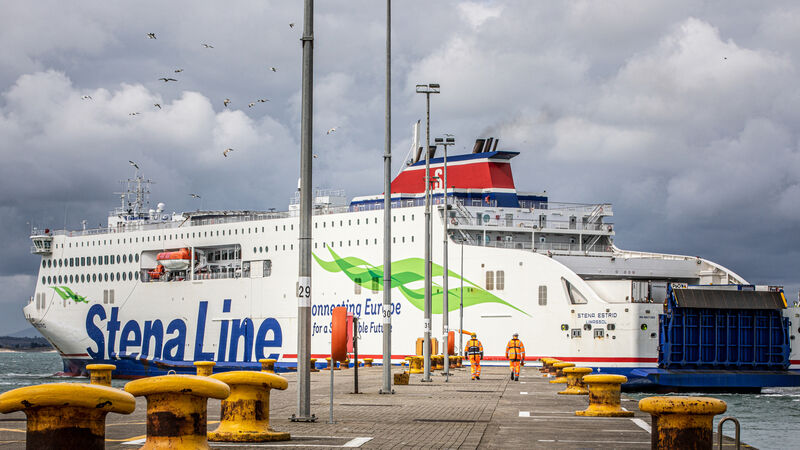John Whelan: Shipping lines to charge climate fees at Irish ports from January

From January, shipping lines including Stena Line will introduce surcharges to offset the cost of the EU emissions trading system (ETS). File picture: Neil Michael
Committed to fighting global warming and anxious to complete her Green Deal ahead of next year’s EU elections, European Commission president Ursula von der Leyen has adopted the final pillars of her legislative package for delivering the EU’s 2030 climate targets.
With the adoption of the revised Renewable Energy Directive and the RefuelEU regulation, the EU now has legally binding climate targets covering all key sectors of the economy. The overall package includes emission-reduction targets across a broad range of sectors.
CLIMATE & SUSTAINABILITY HUB














